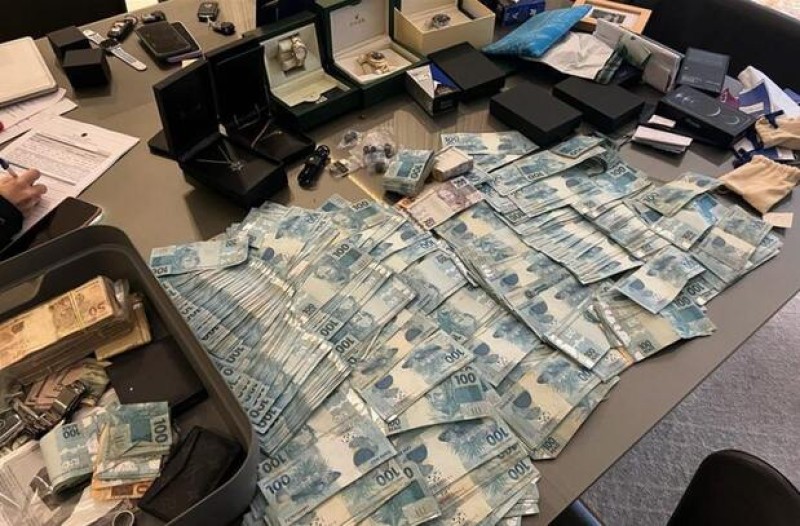The sheik, whose real name is Francisley Valdevino da Silva, was charged Wednesday for his role in a “fake crypto asset trading and mining company” along with three of his associates, who raised more than US$8.4 million from investors throughout the U.S. and other countries, the U.S Securities and Exchange Commission (SEC) said in a news release.
The SEC action is just the latest move against Silva. In early October, police raided 20 locations throughout Brazil and seized luxury goods including cars, watches, gold bars and cash in a joint operation between Brazil, the U.S. Immigration and Customs Enforcement, and Homeland Security Investigation in New York and Florida.
As a consequence of that raid, Silva was ordered to stay away from his associates. When he failed to do so, he was arrested on Nov. 3 and has remained in custody since.
The self-proclaimed scammer boss is believed to have stolen as much as $800 million from numerous investors world-wide since 2016, working first out of the U.S. and then shifting operations to Brazil. In January of 2022, U.S. and Brazilian authorities began coordinating efforts to track his activities in Brazil, where he allegedly set up at least 85 companies.
According to the SEC’s complaint, Silva and three of his aides created and promoted Forcount Trader Systems, Inc., a fraudulent crypto asset pyramid scheme that “enticed and defrauded” hundreds of investors out of millions of dollars between July 2017 to at least November 2020, “with the promise of guaranteed returns resulting from investments in memberships.”
The alleged “memberships” purportedly gave investors an “interest in profits from Forcount’s supposed crypto asset trading and mining operations,” the complaint said. However, the suspects “knew or were reckless in not knowing that the company had no crypto asset trading and mining operations.”
According to the complaint, Silva and his U.S.-based promoters Juan Antonio Tacuri Fajardo, Ramon Antonio Perez Arias, and Jose Ramiro Coronado Reyes held events regularly in hotel conference rooms or online to attract investors. On these occasions, the alleged scammers promised returns of 0.5 percent up to 3 percent per business day, for an annual return of up to 780 percent.
They claimed at these events that investments through Forcount would result in returns from daily trade through their “calibrated robots,” described as a crypto asset “intelligent mining system,” which would “generate daily earns!”
The SEC complaint described it as “a classic pyramid.”
As in any pyramid scheme, early investors were initially able to withdraw their fictitious earnings, with the money coming from later investors’ funds. Often the early investors, believing it was a legitimate investment, encouraged friends and family to invest.
To continue, the scheme had to constantly attract more investors. So, investors were encouraged to participate in the Forcount’s referral program, which incentivized recruiting new victims into the scheme with “a chance to double the rate of return,” read the complaint.
Later in the scheme, the fraudsters began to deny investors’ withdrawal requests. By late 2020, the company ceased permitting any withdrawals.
Silva, Tacuri, Perez and Coronado allegedly “accelerated Forcount’s inevitable collapse” in or around November 2020 by misappropriating and pocketing at least $3.4 million in “investor funds to buy themselves homes, cars, and luxury goods.” By the time Forcount collapsed, all of the money was gone.
In another of his private videos, Silva flaunted his extravagant spending and assets, showcasing two private jets, two helicopters, dozens of luxury vehicles, and a seaside mansion with a heliport in Brazil, while in Florida he had yet another mansion.
He “thanked” investors, who had been told Forcount would contribute some portion of its profits to a charity, for contributing to a “charitable fund” that allowed him to buy a Lamborghini.
According to Thomas P. Smith, Jr., the Co-Acting Regional Director of the SEC in New York, “protecting investors from fraudulent pyramid schemes where promoters pitch high returns and complex commission structures is part of the SEC’s mission to make markets fair and open to all.”
The suspects were charged with violating the anti-fraud and registration provisions of the federal securities laws.


